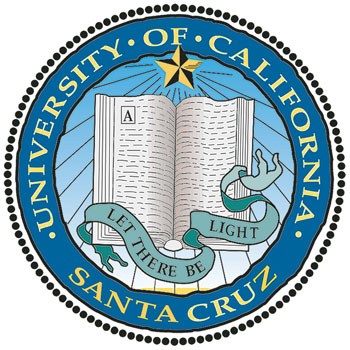Money Will Support Program to Solving Complex Sustainability Challenges in Coastal Environment
The new two-year master’s degree program in environmental science and management is expected to launch in fall 2017 at the Coastal Science Campus. The program will also provide training in this field to Ph.D. students through a designated emphasis in coastal sustainability added to their degrees in relevant fields.
The program will train students to take a solutions-based approach to social and ecological challenges in the coastal zone, where climate change is increasing the vulnerability of ecosystems that provide natural resources and services to dense human populations and productive economies.
The interdisciplinary program will combine training in ecology, conservation biology, and Earth and marine sciences with tools and perspectives from economics, sociology, and public policy. Students in the program will be required to work with partners outside the university to develop practical solutions to real-world problems. These hands-on projects will engage students in direct collaboration with partners such as government agencies, nongovernmental organizations, businesses, and others addressing coastal sustainability challenges.
“A lot of the critical environmental issues in California involve the coastal zone, from the watersheds to the ocean. For people to live more sustainably in the coastal environment, solutions are needed that both protect natural ecosystems and provide benefits for human well-being,” said Peter Raimondi, professor and chair of ecology and evolutionary biology at UC Santa Cruz.
Wells Fargo’s support for the program grew out of interactions that began with UC Santa Cruz acquiring land from Wells Fargo for the Coastal Science Campus, said Paul Koch, dean of physical and biological sciences. The 55 acres acquired from Wells Fargo in 1999 includes the Wells Fargo Coastal Science Research Center, home of the new program.
“Wells Fargo is committed to advancing environmental sustainability. We recognize the critical importance of the health of our marine ecosystems,” said Hope Hardison, Senior Executive Vice President and Chief Administrative Officer at Wells Fargo & Company. “That is why we are supporting UC Santa Cruz’s coastal sustainability program and fellowships so they can develop future leaders and environmental problem solvers who can make a difference in the health of our planet.”
Faculty in the Social Sciences and Physical and Biological Sciences Divisions are developing a set of core courses for the proposed interdisciplinary graduate program. The program will combine training in ecology, conservation biology, and Earth and marine sciences with tools and perspectives from economics, public policy, and law. Market analysis from a consulting firm helped guide the plans for the program.
Recruitment for the program will include strong outreach efforts to students from coastal regions of the United States where there are not only pressing conservation issues and climate adaptation needs, but also large populations underrepresented in the sciences.
Increasing support for coastal sustainability programs is a signature initiative of the Campaign for UC Santa Cruz, which to date has raised more than $210 million in resources for the campus.

